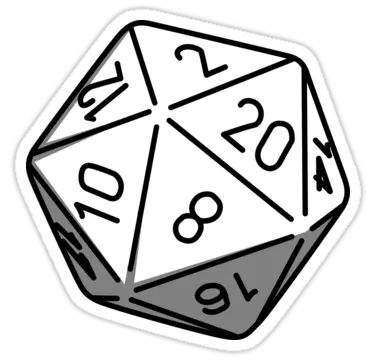Context: I’m missing a cutting board. So I wrote in our telegram family group: “Wo ist eigentlich unser zweites großes Schneidebrett hin?” (literally: “Where is actually our second big cuttingboard thither?”).
By using the modal particle “eigentlich” I insinuate that something is oddly off and express an emotional state of curiousity and/or mild discontent.
By adding “hin”, I notify that I ask because it is not where it is supposed to be and not because I don’t know where it should be.
Now I ask myself, how would I express this additional information in English?
Edit: Thank you all for your answers! I learned a lot. Just our cutting board is still gone, and probably enjoying it’s freedom somewhere … I suppose.
“Yall, where the fuck the other cutting board at?”
They said English, not American.
“Oi, where the bloody hell’s the other chopping board, mate?”
That’s the southern version. Otherwise just “where the fuck is the cutting board?!”
deleted by creator
English is a highly indirect language when it comes to these sorts of statements. “Have you seen the cutting board?” Would indicate that it’s not where it should be. “Where is the cutting board” would be too much of a personal accusation. It’s the type of thing you would say to a child that had hidden it. “Where do you keep the cutting board” would be how you ask when you honestly don’t know, like if you’re helping a friend prepare dinner.
“It looks like the second cutting board has grown legs. Any ideas?”
The first sentence uses a sarcastic metaphor that indicates the correct placement is known but the item is not to be found there
The second sentence expresses an interest in knowing what others can tell the speaker about this situation - maybe not quite discontent, but definitely interest in it being located
In Germany, if something has grown legs, it’s implied that someone took it without asking or it has been stolen. At least that is how I am using it, or how I grew up using it.
It can also mean that in English but generally not specifically, depending on context.
Yes we have that in English too. But we also have the use of “stolen” to mean “borrowed without checking first”.
It implies zero or only the tiniest possible wrongdoing on the part or the one who took it. The use of the strong word “stolen” is meant as a sort of disjunction to eliminate any interpretation of mild annoyance.
It’s sarcasm basically, but without the tone. It’s like when I say “Uh I took one of your french fries when you were away from the table” and someone else says “oh you’re going to jail Bud”. It’s a sarcastic escalation of the severity, to signal the opposite: “It’s totally okay”
The key for all the top answers is that they imply the chopping board has moved of its own volition. This is what adds the subtle emotion to “Where is the chopping board?” without the stronger anger, hostility or suspicion.
You’re communicating that it’s not where it’s expected to be and that you’re concerned about the reason that as well as finding it.
Also having grown legs is wrong for a cutting board. It’s literally an abomination, and that implies the cutting board being gone, as a state of affairs, is a wrong. That implies the place I’ve looked and not found it is the right place, which implies I know and have checked its home location.
Something is oddly off and I’m expressing emotional state of curiosity and/or mild discontent: “So …”
It is not where it should be, but I do indeed know where the place it should be is: reference to its place.
Here’s your equivalent question in English:
So … the cutting board’s not in its place. Anybody know where it is?
Actually this could be shorter:
So … anybody know where the cutting board has gotten to?
This phrase “has gotten to” vaguely refers to a child or animal that is missing; and the missing implies it has a known home location.
Ooh ooh! Even shorter:
So … anybody know where the cutting board went?
“went” implies that I know it has moved, ie that I knew where it was, and know it’s not there right now.
Referencing a specific location can either mean “I saw it somewhere once” or it can mean “I know its home location”, and the first use case doesn’t make sense per theory of mind because if you saw it in a random place others wouldn’t know where that place is.
The cutting board seems to have vanished!
Send it back, Picard!
“Where has the second cutting board gone?”
This indicates that it’s not where it’s supposed to be, or at least not where you expected it to be and you’re looking for it. I can’t say for sure as I don’t speak German, but in English the “emotional state” you refer to is pretty clear in the context.
“Where is actually our second big cuttingboard thither?"
I lol’d
“Eigentlich” here would be “by the way” because it’s used to express curiosity in a marginalised way. “wo ist… hin” is “where has… gone (to)”
So a more literal translation including the undertones would be “By the way, where has our big cutting board gone?”
I think the most direct translation in this context would be “Where on earth is…” (or more extreme) “Where the hell is…”
These inserts add almost exactly the same connotations you describe for “eigentlich”, though perhaps also with the implication that you have spent some time looking for it already
O cutting board, cutting board, wherefore art thou cutting board?
“Because otherwise you’d damage your kitchen counter”
“Deny thy counter and refuse thy knife”
Perfect response
Add an expletive. Example “where’s the fucking cutting board?”
Where the fucking fuck is the fucking fuck? Fuck!
Spoken verbally, intonation can get you there. You can imagine this question asked perfectly calmly and innocently, “Where’s the cutting board?” “Oh it’s over there on the kitchen table.” “Ah.” Or you could imagine Batman growl screaming it in the Joker’s face. WHERE’S THE CUTTING BOARD?!?! TELL ME!!!
Now, in terms of phrasing, “Does anyone know where the cutting board is?” is probably fairly calm and innocent, “Who hid the cutting board?” is more accusatory/conspiratorial, “where’d the cutting board go?” implies you know where it was/should be, but it is not there, “What happened to the cutting board?” might mean it’s gone, or it might mean it’s damaged or in some adverse state, “Where the hell is the cutting board?” is probably getting a bit angry, “If I were a cutting board, where would I be?” means you’re either in a new kitchen and don’t know where the tools are stored, or it has been misplaced and you’re still calm about it…there are lots of options.
“Where has it gone?” = avoiding assigning blame. “Where did you put it?” = assigning blame.
‘Where has the cutting board wandered off to?’ Something passively accusatory. Everyone knows the board didn’t move itself, but the speaker is not assigning blame. …and because everyone knows that there is blame to be assigned, the annoyance is sort of implied?
Looks like the cutting board didn’t get put away last time it was used, does anyone know where it ended up?
Garfield’s 1978 pipe strip resonates with a new generation once more!
Maybe “Does anyone know where the second big cutting board is?”
A slight change:
Does anyone know where the second big cutting board went?
The ‘went’ would reinforce the second point OP wanted, to clarify that they know where the board usually is, but not where it is now
Are you asking how to express this information in a utilitarian way, as in, how do you convey the information to be understood? Or are you asking how to express it in a poetic way? The use of thither makes me think you’re hoping to express this is a jokingly poetic sense.
In an everyday colloquial way.
The directional particel “hin” is a commonly used word in German without an exact equivalent in English. “thither” is the best approximation I could find, though it’s usage is completely different, of course.
“gone to” is probably a more accurate translation, because “thither” is such an obscure word in English it gives the wrong impression.











